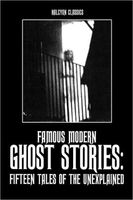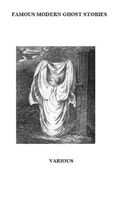- Welcome to FictionDB, Guest
- | My Account
- | Help

Famous Modern Ghost Stories — Createspace
“Miss Scarborough is one of the most industrious of the hunters of ghosts in literature, and certainly she is a learned one….Readers will be indebted to her for much pleasure.” -The Weekly Review, Volume 4, 1921
“Ghost stories, grave and gay, are furnished forth…Gives room for divergent tastes and ample material for many winter evenings' short readings.” -New Outlook, Volume 128, 1921
The Willows by Algernon Blackwood
The Shadows on the Wall by Mary E. Wilkins
The Messenger by Robert W. Chambers
Lazarus by Leonid Andreyev
The Beast with Five Fingers by W.F. Harvey
The Mass of Shadows by Anatole France
What Was It? by Fitz-James O-Brien
The Middle Toe of the Right Foot by Ambrose Bierce
The Shell of Sense by Olivia Howard Dunbar
The Woman at Seven Brothers by Wilbur Daniel Steele
At The Gate by Myla Jo Closser
Ligeia by Edgar Allan Poe
The Haunted Orchard by Richard le Gallienne
The Bowmen by Arthur Machen
A Ghost by Guy de Maupassant
“Ghosts have always haunted literature, and doubtless always will. Specters seem never to wear out or to die, but renew their tissue both of person and of raiment, in marvelous fashion, so that their number increases with a Malthusian relentlessness. We of to-day have the ghosts that haunted our ancestors, as well as our own modern revenants, and there's no earthly use trying to banish or exorcise them by such a simple thing as disbelief in them. Schopenhauer asserts that a belief in ghosts is born with man, that it is found in all ages and in all lands, and that no one is free from it. Since accounts vary, and our earliest antecedents were poor diarists, it is difficult to establish the apostolic succession of spooks in actual life, but in literature, the line reaches back as far as the primeval picture writing. A study of animism in primitive culture shows many interesting links between the past and the present in this matter. And anyhow, since man knows that whether or not he has seen a ghost, presently he'll be one, he's fascinated with the subject. And he creates ghosts, not merely in his own image, but according to his dreams of power.” -from the Introduction




